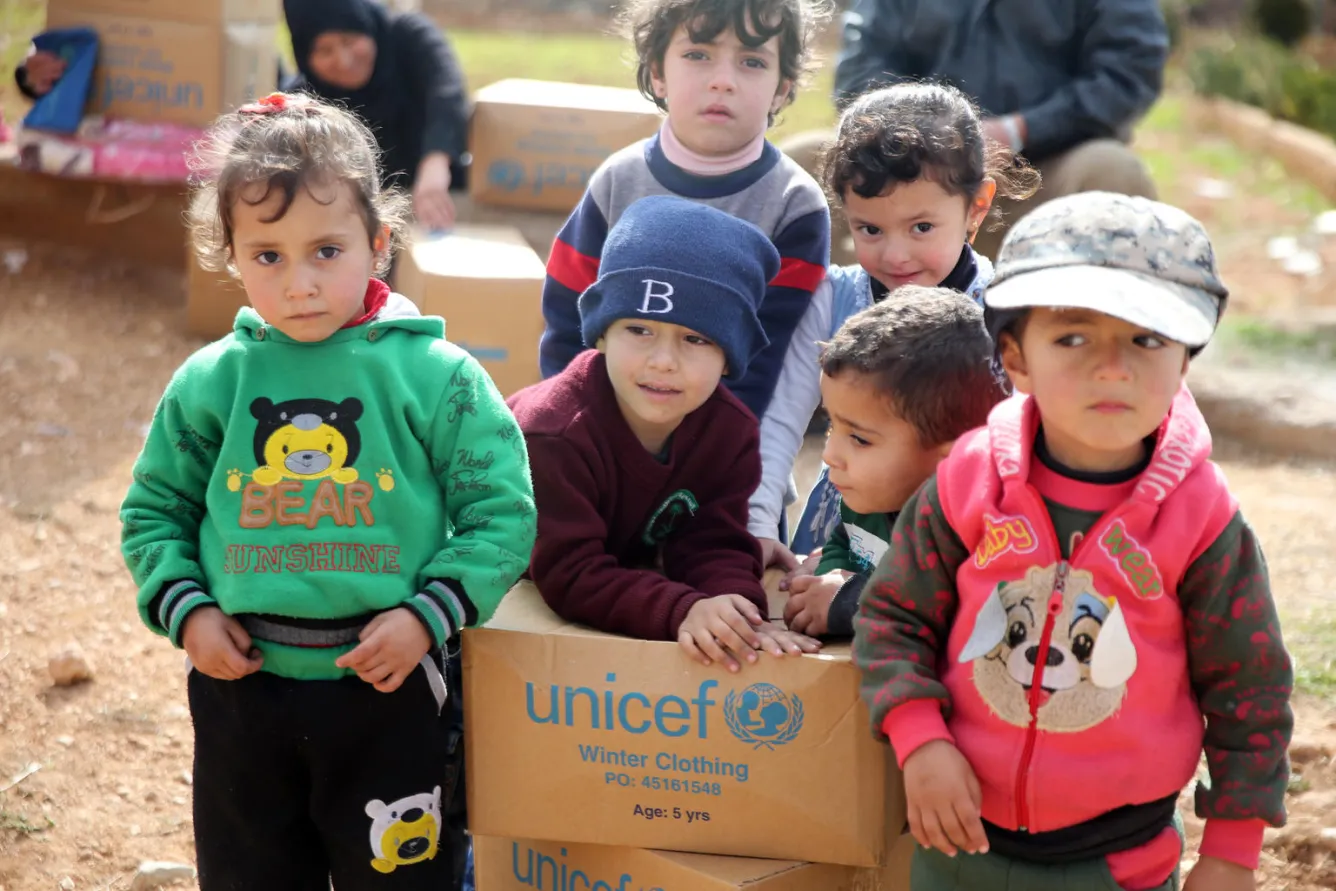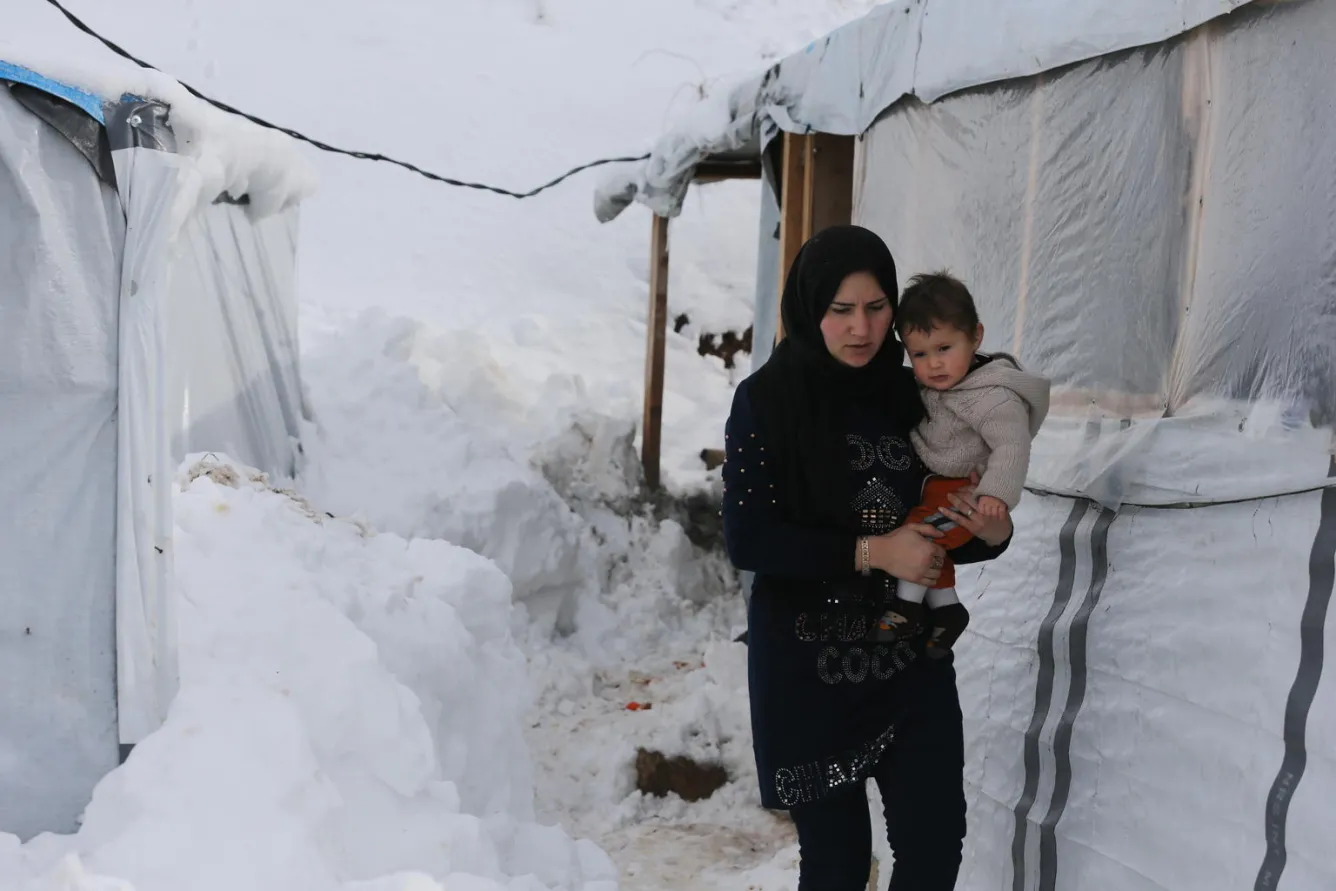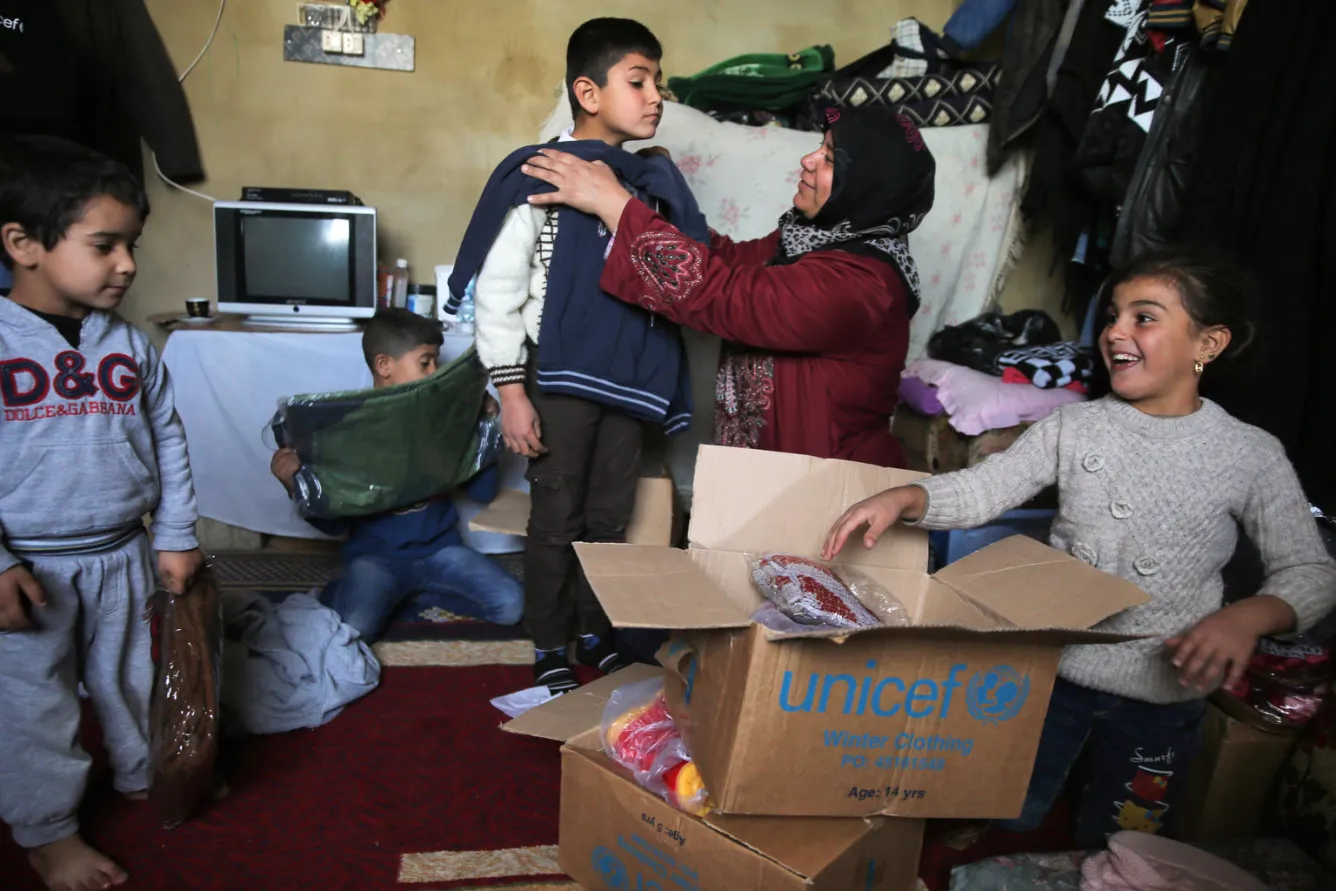Keeping Children Warm Through 2019

#ForEveryChild, Warmth
While parts of Canada are experiencing what could only be described as a balmy December, freezing weather is sweeping the Middle East and North Africa, with temperatures dropping to zero and below in several areas.
In Lebanon, heavy storms in early January 2019 affected more than 570 informal tented sites all over the country, which are home to over 22,500 refugees. Spontaneous settlements in Lebanon are made of temporary shelter materials, and these dwellings cannot sustain extreme weather conditions for too long.
Millions of vulnerable children in Syria, Iraq, Lebanon, Jordan, Turkey, Egypt and the State of Palestine have little protection against the cold. Most have fled violence with almost nothing. In those countries alone there are nearly 4 million internally displaced children and 3.5 million children living as refugees.
Every dollar makes a difference. Through UNICEF Canada's Survival Gifts, a baby in the Middle East can be kept warm with a package of three thermal blankets starting from $27. That’s lower than what it costs at your neighbourhood home furnishings store.
Winter in a refugee camp is not easy for a child. Temperatures drop, making it hard to attend school without warm clothes, jackets and boots. Winter storms can cause flooding and icy conditions making it hard to get around. In clinics, health workers treating a rising number of children for respiratory illnesses, caused by the bitter weather conditions.
Your donation can make a difference to a child in need.

“Years of conflict, displacement and unemployment have reduced families’ financial resources to almost nothing. Staying warm has simply become unaffordable,” said Geert Cappelaere, UNICEF Regional Director for the Middle East and North Africa.
Additionally in rural areas, where many refugee camps and settlements are based, there are hardly any shops or facilities, making it even more difficult for families to properly clothe their children for the winter.

UNICEF’s winter campaign aims to reach the most vulnerable children aged between three months and 16 years old, who live in camps, settlements and rural areas.
For children who live in areas with shops and facilities, families are provided with cash assistance, to help them purchase winter clothing from local business owners. In rural and lesser developed areas and settlements, UNICEF provides children with winter clothing kits – including a set of warm clothes, gloves, hats, boots, socks, scarves and thermal blankets.
In Lebanon, some 10,000 refugees have been reached with urgent distributions, and aid agencies will continue working around the clock to reach all affected refugees and sites. However, aid agencies estimate that approximately 850 informal settlements, hosting over 70,000 refugees, are at risk of being affected by extreme weather.

In the winter of 2018 and 2019, UNICEF aims to reach 1.3 million children in the Middle East with warm clothes, thermal blankets, WASH and hygiene support, and cash assistance for families. UNICEF’s winter response supports existing programmes in health, nutrition, family reunification, water and sanitation, protection and education and aims to keep vulnerable children across the region warm, healthy and in school this winter.
We can’t do it without you though. Your donation or purchase of a UNICEF Canada Survival Gift can help keep babies, children and youth clothed, warm and healthy as winter temperatures plummet.
